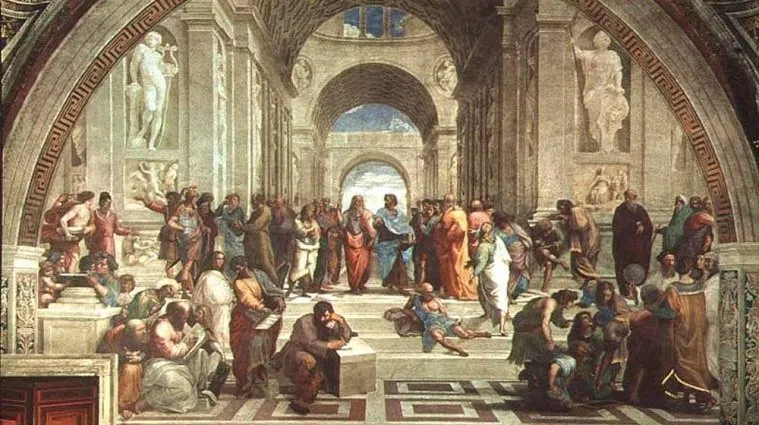The second attempt to reconcile the teachings of the Heliants with the doctrine of Heraclitus is done by Anaxagor.Anaxagor was born 500 years ago in the Maloasian town of Klasomena, near Smyrna, as the son of Hegesibul or Eubul, and came from a rich and wealthy family. About 20 years ago, when the rivalry and war between the Greeks and the Persians began, he attributed himself to philosophy because he had no incentive to engage in political, military and economic affairs. In this respect, he first gave a wonderful example of how the theoretical studies can engage and satisfy man inwardly. Dedicated in particular to astronomical and geological research. And when they accused him of forgetting "the needs and immediate interests of his homeland" for science, a reproach that remains typical of all ages - he, pointing to the sky, replied that he was really our own homeland, and that he was the best- he can be little accused of neglecting her.
Aristotle, who teaches that astonishment, admiration is the beginning of philosophy, tells us why Anaxedore has given himself so thoroughly and unselfishly to philosophy: he admired the beauty and harmony of the world. When asked once, why live despite the worries, struggles and sufferings of life-he replied that living is better than a person to speed up his death, that the living one still has the ultimate joy of being able to observe and studying the sky and admiring the wonderful harmony in the world in the universe. They penetrate such a profound understanding of scientific and philosophical activity, writes Professor Eve. Georgogov, Anaxagor is a thinker possessed of an ardent longing for the mystery of the universe and feeling blessed himself in this devotion to his scientific work. That is why Euripides, who was one of his inspired disciples, says of him: "Happy is the man who keeps the study of the truth and does not want to increase his sufferings with unfair deeds but abides in the contemplation of the unchallenging order of the eternal universe and wants to know how it came from. Whose this has been revealed, it will never come to mind in disgraceful deeds. "
This testimony is a wonderful feature not only for the nobility of Anaxagoras, but also for every true philosopher who, with his sublime aspirations, does not interfere with the petty routines of everyday life, and thus influences educationally on others. After the Greco-Persian wars, when Athens became a centerpiece of Greece's entire cultural life, Anaxagoras moved there and spent more than thirty years in active philosophical activity and in partnership with the capital's leaders, headed by Pericles himself. Plato tells his Pedaurus that Pericles became famous for his oratorial art, because of his friendship with Anaxagoras he learned a permeated and perfect / exalted / judging of the things he learned to watch / sub specie aeteznitatis / and this is much more important than the floral phrase of the phrase. Later, because of his free and original views of the world, which he did not agree with in his then practical and materialistic views, Anaxagoras was accused of disregarding the state religion and convicted. What was the outcome of the case? Whether he was acquitted or imprisoned and released due to Pericles' personal interference is not well known. However, it is well known that he did not have any more place in Athens and he had to spend his last years in Lapsac, where he died 428 years or 427 years ago, highly respected by the citizens, after he had given the urge their scientific research. In his memory, they erected an altar dedicated to world intelligence and thinking.
